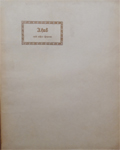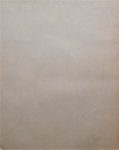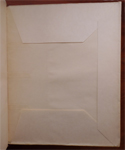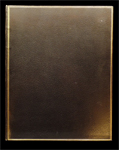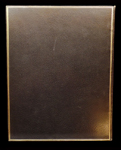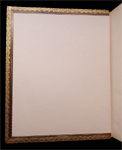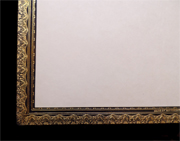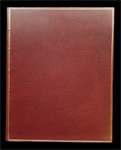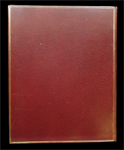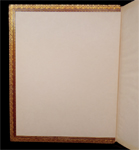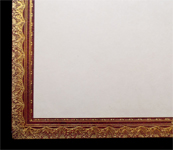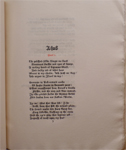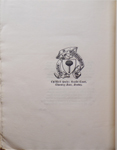100th
MP

|
THE
100th
MONKEY
PRESS |
|
|
|
Limited Editions by Aleister Crowley & Victor B. Neuburg |
|
Bibliographies |
|
Download Texts
»
Aleister
Crowley
WANTED !!NEW!!
|
|
AHAB AND OTHER POEMS |
|
Image Thumbnails |
||||||||||||||||||||||||||||||||||||||||||||||||||||
|
Title: |
Ahab and Other Poems. With an Introduction and Epilogue by Count Vladimir Svareff. |
|
||||||||||||||||||||||||||||||||||||||||||||||||||
|
Variations: |
|
|||||||||||||||||||||||||||||||||||||||||||||||||||
|
Publisher: |
Privately published. |
|||||||||||||||||||||||||||||||||||||||||||||||||||
|
Printer: |
||||||||||||||||||||||||||||||||||||||||||||||||||||
|
Published At: |
|
|||||||||||||||||||||||||||||||||||||||||||||||||||
|
Date: |
circa June 1903. |
|||||||||||||||||||||||||||||||||||||||||||||||||||
|
Edition: |
1st Edition. |
|||||||||||||||||||||||||||||||||||||||||||||||||||
|
Pages: |
viii + 36. |
|||||||||||||||||||||||||||||||||||||||||||||||||||
|
Price: |
The hand-made paper copies were priced at 5 shillings.1 |
|||||||||||||||||||||||||||||||||||||||||||||||||||
|
Remarks: |
Printed in the Caxton font of antique type.1 Title page and "Part I" and "Part II" printed in black and red.7 Count Vladimir Svareff is a pseudonym of Aleister Crowley. Dedicated to George Cecil Jones.7 Crowley began work on Ahab in 1902 while in Akyab, Burma, and completed it on December 9th of the same year.9 |
|||||||||||||||||||||||||||||||||||||||||||||||||||
|
Pagination:3 |
|
|||||||||||||||||||||||||||||||||||||||||||||||||||
|
Contents: |
- Rondel - Ahab - Balzac - Melusine - The Dream - Epilogue |
|||||||||||||||||||||||||||||||||||||||||||||||||||
|
Author’s Working Versions: |
|
|||||||||||||||||||||||||||||||||||||||||||||||||||
|
Other Known Editions: |
|
|||||||||||||||||||||||||||||||||||||||||||||||||||
|
Bibliographic Sources: |
|
|||||||||||||||||||||||||||||||||||||||||||||||||||
|
Comments by Aleister Crowley: |
While at
Akyab I wrote Ahab, which, with a few other poems, was
published as a companion to Jezebel. |
|||||||||||||||||||||||||||||||||||||||||||||||||||
|
Reviews: |
Mr Aleister Crowley’s previous work has been eccentric, and at the best he has done more to provoke curiosity than to give confidence. Now he chooses to handicap himself by printing poems in a type that must inevitably impose restrictions upon many readers, and we think that the diction, usually admirably simple, of the principal piece in “Ahab and Other Poems” (Chiswick Press, pp. 34, 5s. net) suffers from any interruption of the fluency of its rhythms. Mr Crowley has amplified the Biblical narrative, and, with an obvious revolt of sympathy, has given to the savage figure of Ahab something of the nobility of reason that rebels against the tyranny of his fate. There is a modern self-consciousness in this tragic, brooding monologue—
I see him, a fantastic ghost, The vineyard smiling white and plain, And hiding ever innermost The little shadows on his brain; I laugh again with mirthless glee, As knowing also I am he.
A fool in gorgeous attire! An ox decked bravely for his doom! So step I to the great desire. Sweet winds upon the gathering gloom Bend like a mother, as I go, Foreknowing, to my overthrow.
Mr Crowley has some doubtful phrases, but most of his verse is clear and moderate. Here is his picture of Naboth:—
The beast. A gray deceitful man, With twisted mouth the beard would hide, Evil yet strong; the scurrile clan Exaggerate for its greed and pride, The scum of Israel! At one look I read my foe as in a book.
The beast. He groveled in the dust. I heard the teeth grind as he bowed His forehead to the earth. Still just, Still patient, passionless, and proud, I ruled my heavy wrath. I passed That hidden insult, spake at last.
The other pieces include a grandiose sonnet on Rodin’s statue of Balzac; “Melusine,” in which mannerisms and affectations predominate; and “The Dream,” a smooth piece of verse that leaves no very strong impression. There are an introduction and an epilogue in verse by Count Vladimir Svareff. —The Manchester Guardian, circa 1903. ______________________________
Mr. Aleister Crowley, not content with the usual risk of the neglect that threatens minor poets, has had his verse set up in what is apparently German black-letter. Thereby tempting the most conscientious reviewer to take his volume as read. —The Glasgow Herald, date unknown. ______________________________
"Ahab and Other Poems", by Mr. Aleister Crowley is a sumptuous volume, delightful to eyes accustomed to mediaeval script, but puzzling to such as are not. The prettiest poem in the book is "The Dream," from which we give the opening lines:
"Bend down in dream the shadow-shape Of tender breasts and bare! Let the long locks of gold escape, And cover me and fall and drape, A pall of whispering hair! And let the starry eyes look through That mist of silken light And lips drop forth their honey-dew And gentle sighs of sleep renew The scented winds of night."
In "Melusine" Mr. Crowley has caught something of the trick of reiteration of metaphor, which is familiar to all readers of Mr. Swinburne, e.g.
And like a devil-fish is ice, And like a devil-fish is cruel, And like a devil-fish is hate."
"Thule" is, in the same stanza, made to rhyme with "cruel"! The title-poem, which occupies two-thirds of the book, is a most unsatisfactory performance, but it is superior in technique to the rest. —The Westminster Review, August 1903. ______________________________
Ahab, and Other Poems. By Allister Crowley. With an Introduction and Epilogue by Count Vladimir Svareff. London: Privately Printed at the Chiswick Press. There are not many pieces in this elaborately and handsomely printed large quarto, about which the first thing that impresses a reader is an odd typography, more luxurious than legible until custom has made it easy to read. The chief piece is a monologue in studiously simple verse, not unmusical, which sets forth the reflections of King Ahab, firstly in his pride, and afterwards in his humiliation after the affair of Naboth’s vineyard. Then there is a sonnet to Balzac, inspired by Rodin’s statue; then a piece of fine-spun verse-making about Melusine, that endeavours to produce the exquisite shudder which some say is the last effect of poetic art; then an irresponsible ecstasy about a dream; while the book is rounded off by a sonnet from another hand than its author’s. The whole thing is elegant and refines; but it is the product of a polite accomplishment rather than essential poetry. —The Scotsman, 8 June 1903.
|
|||||||||||||||||||||||||||||||||||||||||||||||||||
